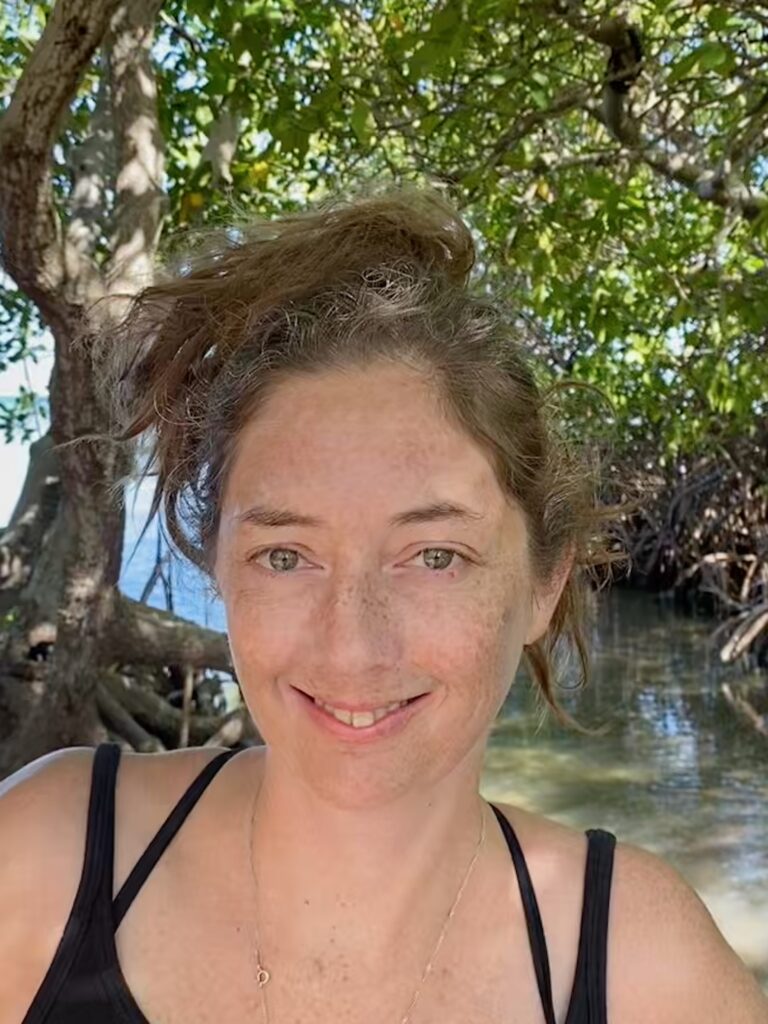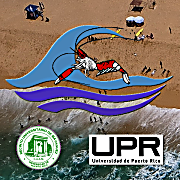Noelle Lucey, PhD
.

Assistant Professor: Marine Ecophysiology and Aquaculture
PhD: University of Pavia, Italy
Department of Marine Sciences
University of Puerto Rico, Mayagüez Campus
PO Box 9000
Mayagüez, PR 00681-9000
Tel. (787) 899-2048 ext. 228
Email: noelle.lucey@upr.edu
Webpage: www.luceylab.com
Office: Magueyes Marine Laboratories
Link: https://orcid.org/0000-0002-7975-8521
.
RESEARCH
I am an organismal marine biologist with a long-standing interest in climate change and physiology. From marine worms to brittle stars and corals, my research uses marine invertebrates as models to understand how marine biodiversity is changing because of the climate crisis. More specifically, my research employs a unique suite of field and laboratory approaches to assess – and mitigate – the ecological consequences of ocean acidification, warming, and ocean oxygen loss. I do so by comparing physiological responses of organisms across oceans, depths, environmental gradients, phylogenies, life stages, and generations (comparative and evolutionary physiology).
I apply these research interests in an interdisciplinary capacity, forming connections between ecophysiology-based research and oceanography, climate modeling, and marine aquaculture innovation. The overarching goal of my lab is to aid in the development of scalable and effective solutions for sustainable and equitable tropical marine resources.
.
TOPICS
Physiological adaptation, marine invertebrates, multi-stressor experiments, climate resilience, integrated multi-tropic aquaculture, marine habitability and biogeography, compound extreme events, tropical marine biodiversity, oxygen, hypoxia and metabolism, marine conservation.
.
COURSES
CMOB 5017 Ecology and the management of marine resources
.
STUDENTS
Carolina César-Ávila (MS)
Jonathan Burnap (MS)
.
RECENT PUBLICATIONS
Lucey, N., César-Ávila, C., Eckert, A., Veintimilla. P., Collin, R. (2025). Locally adapted coral species withstand a 2-week hypoxic event. Oceans. https://doi.org/10.3390/oceans6010005
Cabral, H., Madeira, D., Diniz, M., Madeira, C., Maulvault, A., Arevalo, E., Lucey, N., Dupont, S. Climate change impacts on coastal biological communities, chapter in “An ecosystem view of anthropogenic impacts in the ocean.” Edited by J.M. Molina and G. Blasina, CRC Press/ Taylor and Francis Group, 2025, 1-107.
Lucey, N., César-Ávila, C., Eckert, A., Rajagopalan, A., Kline, E., Brister, W., Altieri, A., Deutsch, C., Collin, R. (2024). Coral community composition linked to hypoxia exposure. Global Change Biology. https://doi.org/10.1111/gcb.17545
Johnson, M., Klein, S,. Lucey, N., Steckbauer, A., Shore, A., Camp. E. (2024). Editorial: Drivers and consequences of ocean deoxygenation in tropical ecosystems. Frontiers in Marine Science. https://doi.org/10.3389/fmars.2024.1425902
Deutsch, C., Penn, J. Lucey, N. (2023). Climate, oxygen, and the future of marine biodiversity. Annual Review of Marine Science. https://doi.org/10.1146/annurev-marine-040323-095231
Lucey, N., Deutsch, C., Carignan, M.H., Vermandele, F., Collins, M., Collin, R., Calosi, P. (2023). Climate warming erodes tropical reef habitat by increasing frequency and intensity of low oxygen extremes. PLOS Climate. https://doi.org/10.1371/journal.pclm.0000095
Lucey, N., Aube, C.*, Herwig, A.*, Collin, R. (2022). Compound extreme events induce rapid mortality of coral reef herbivores. The Biological Bulletin. https://doi.org/10.1086/722283
.
NOTE: The information on this page changes frequently, may be outdated and in need of revision. Please contact us for the most up to date information, cima@uprm.edu
.

